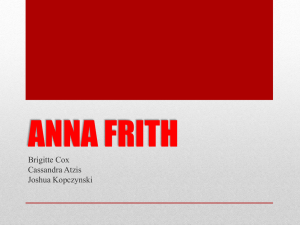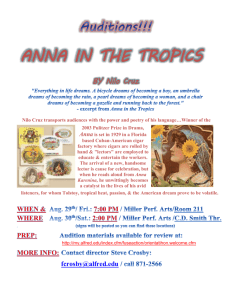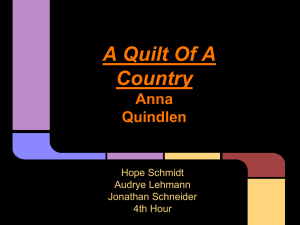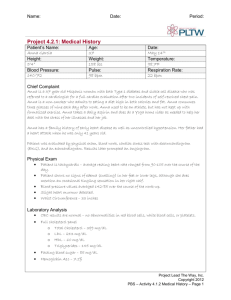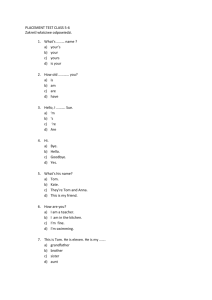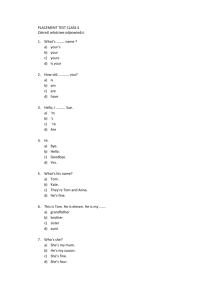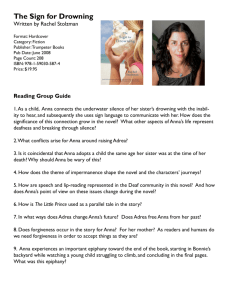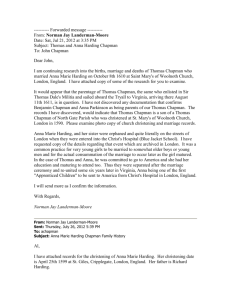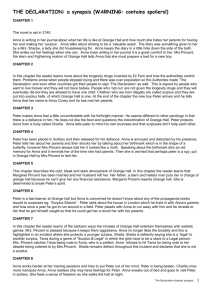It is 1961, and the world is in black and white. Eight-year
advertisement
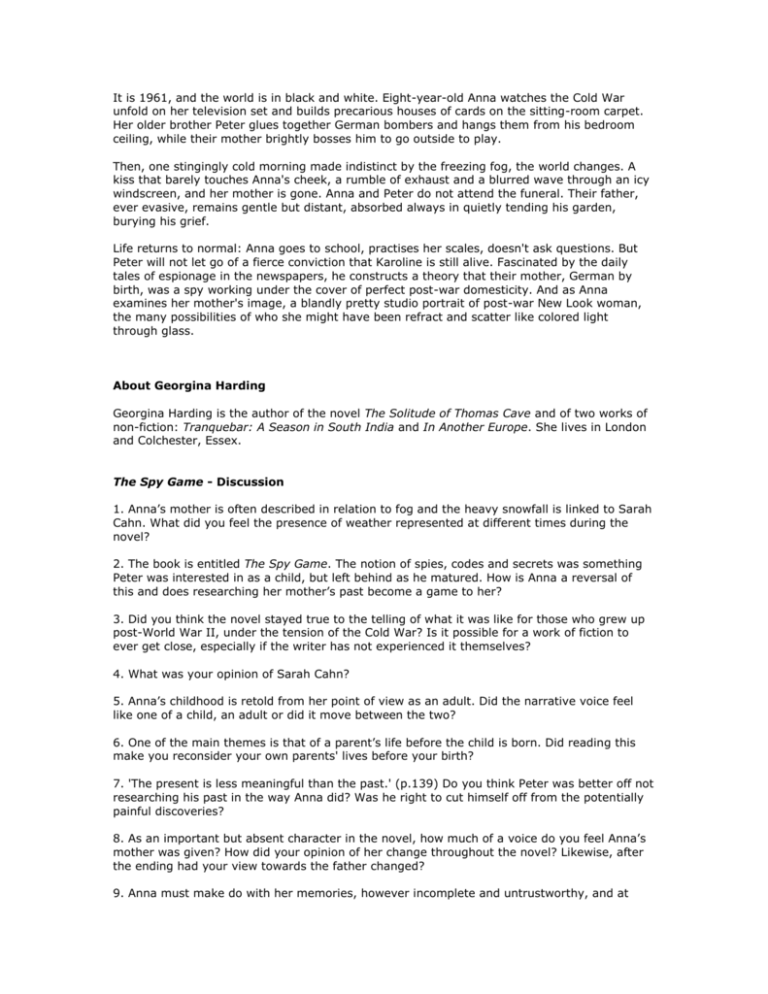
It is 1961, and the world is in black and white. Eight-year-old Anna watches the Cold War unfold on her television set and builds precarious houses of cards on the sitting-room carpet. Her older brother Peter glues together German bombers and hangs them from his bedroom ceiling, while their mother brightly bosses him to go outside to play. Then, one stingingly cold morning made indistinct by the freezing fog, the world changes. A kiss that barely touches Anna's cheek, a rumble of exhaust and a blurred wave through an icy windscreen, and her mother is gone. Anna and Peter do not attend the funeral. Their father, ever evasive, remains gentle but distant, absorbed always in quietly tending his garden, burying his grief. Life returns to normal: Anna goes to school, practises her scales, doesn't ask questions. But Peter will not let go of a fierce conviction that Karoline is still alive. Fascinated by the daily tales of espionage in the newspapers, he constructs a theory that their mother, German by birth, was a spy working under the cover of perfect post-war domesticity. And as Anna examines her mother's image, a blandly pretty studio portrait of post-war New Look woman, the many possibilities of who she might have been refract and scatter like colored light through glass. About Georgina Harding Georgina Harding is the author of the novel The Solitude of Thomas Cave and of two works of non-fiction: Tranquebar: A Season in South India and In Another Europe. She lives in London and Colchester, Essex. The Spy Game - Discussion 1. Anna’s mother is often described in relation to fog and the heavy snowfall is linked to Sarah Cahn. What did you feel the presence of weather represented at different times during the novel? 2. The book is entitled The Spy Game. The notion of spies, codes and secrets was something Peter was interested in as a child, but left behind as he matured. How is Anna a reversal of this and does researching her mother’s past become a game to her? 3. Did you think the novel stayed true to the telling of what it was like for those who grew up post-World War II, under the tension of the Cold War? Is it possible for a work of fiction to ever get close, especially if the writer has not experienced it themselves? 4. What was your opinion of Sarah Cahn? 5. Anna’s childhood is retold from her point of view as an adult. Did the narrative voice feel like one of a child, an adult or did it move between the two? 6. One of the main themes is that of a parent’s life before the child is born. Did reading this make you reconsider your own parents' lives before your birth? 7. 'The present is less meaningful than the past.' (p.139) Do you think Peter was better off not researching his past in the way Anna did? Was he right to cut himself off from the potentially painful discoveries? 8. As an important but absent character in the novel, how much of a voice do you feel Anna’s mother was given? How did your opinion of her change throughout the novel? Likewise, after the ending had your view towards the father changed? 9. Anna must make do with her memories, however incomplete and untrustworthy, and at times gives in to fanciful imagination of how important scenes in her mother’s life had played out. Is one ‘better’ than the other? Which do you think made her feel closer to her mother? 10. Did the novel’s ending answer questions for you or did it add more? Further Reading Spies by Michael Frayn Restless by William Boyd Atonement by Ian McEwan On Chesil Beach by Ian McEwan Other Books by Georgina Harding Fiction The Solitude of Thomas Cave Non-Fiction Tranquebar: A Season in South India In Another Europe: Journey across Hungary and Romania
